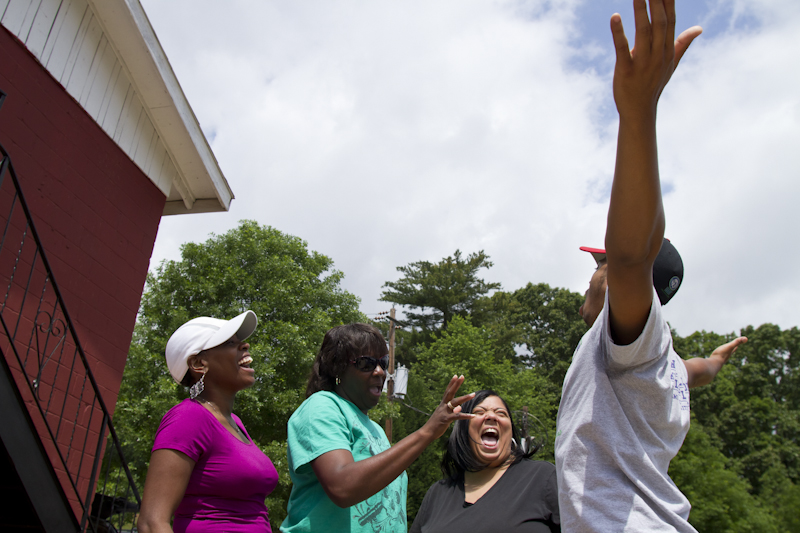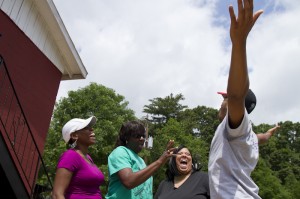 Stacey Strozier found her son lying in the street in a pool of blood.
Stacey Strozier found her son lying in the street in a pool of blood.
Sonya King prayed her baby wouldn’t get caught up with the wrong crowd.
And Felecia Calhoun’s worried her son was a cocky kid who thought an education wasn’t all that important.
The mothers of the L.E.A.D. Ambassadors -- an Atlanta inner-city baseball team that thrives of civic-minded goodness and specializes in sending its players to colleges on scholarships -- all have a story to tell.
Having a story of adversity to tell is essentially a prerequisite of Ambassador founders, C.J. and Kelley Stewart. The Stewarts aren’t interested in the players who already have it made. They want to find raw talent in some of the most rundown, crime-ridden neighborhoods of Atlanta, develop that talent and along the way, teach responsibility, leadership and community.
“Lorenzo was not a bad guy, but if he didn’t find a better avenue, it could have been not so good for him,” said Sonya King, Lorenzo Woodward’s mother. “I’m old school; I try to keep him away from danger outside of the home. But this program gives him something positive to do, to look forward to. By staying busy, the influences of the street won’t entice him.
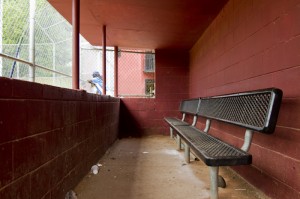 “This program has made him a better person. It’s giving him a direction and a purpose to do well not just in school, but in the community.”
“This program has made him a better person. It’s giving him a direction and a purpose to do well not just in school, but in the community.”
Lorenzo knows the things his mom is saying are true. Probably, worse.
“Without L.E.A.D, it would be hard for me to stay on the right path,” said the rising senior at Atlanta’s Carver High School on the city’s south side. “My mom does everything for me by herself. But this team is a second family to me; they take care of me.”
Sonya is a waitress at Waffle House and works the night shift, “so we can have a roof, and food in our bellies,” Lorenzo said.
While providing what she could for Lorenzo and his brothers and sisters, she couldn’t be a 24-hour angel keeping 16-year-old Lorenzo safe and out of trouble. No mother can.
“I did things I regret doing in my community,” he said. “We’ve had some problems and it’s not always been safe. There have been shootings, burglaries, people fighting a lot.
“We’ve been victims of burglaries a lot. They happen every week. That’s what people in our old neighborhood are trained for. Almost every day I would see police out there locking people up. I’d hear gunfire, then it would get quiet, and an hour later, it comes back. I’ve seen people get shot, one right beside my home. I’ve seen people doing drugs and heard a lady get raped in a vacant apartment.”
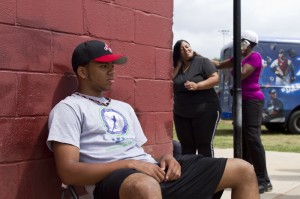 Lorenzo stayed out of all trouble except for an occasional fight, when he thought someone was taking advantage of his special-needs brother, or his mom.
Lorenzo stayed out of all trouble except for an occasional fight, when he thought someone was taking advantage of his special-needs brother, or his mom.
The family has since moved to the other side of the Amal Heights neighborhood in the southeast part of Atlanta. The move wasn’t far, but it helped.
“It’s a good bit safer where we are now,” he said.
One of the Ambassador’s graduates, Chris Traylor, now plays baseball at Selma University, in Selma Ala. His mother, Stacey Strozier, got a call from a neighbor a couple of years ago saying her son had been shot.
“I saw him laying there and I didn’t know if he’d been shot in the leg or the gut or where,” Strozier said. “I didn’t know if that was it for my boy.”
Chris was walking home and had just texted his mom: ‘Be home in five minutes.’ It was 8:24 p.m. Seconds later, a car drove by, an arm reached out the window, and shots were fired. Chris was shot through both of his legs.
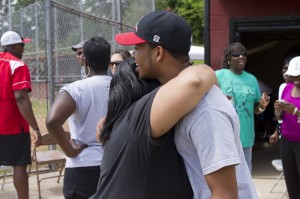 That night was when Chris first understood what his mother had been telling him for years: ‘Son, even if you don’t find trouble, trouble can find you.’
That night was when Chris first understood what his mother had been telling him for years: ‘Son, even if you don’t find trouble, trouble can find you.’
From then on, if trouble was going to find Chris, it was going to find him shielded by a mentor, a team of brothers and a game that was offering him a chance of a better life. Chris joined Stewart’s Ambassadors team long before his legs had regained their strength.
Compared to what Lorenzo’s and Chris’ mothers lived through, Felecia Calhoun and her son Mendez seemingly have lived a charmed life.
But ask just about anyone what kind of teammate Mendez was when he first joined the Ambassadors and the answer, invariably would be: poor.
“He’s changed on the field,” Felecia said. “He had a bad attitude and would go overboard with competitiveness.”
Again, that might be mama being a little kind.
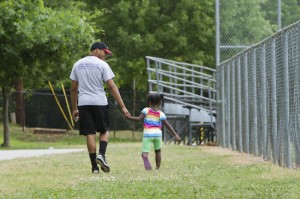 C.J. Stewart says Mendez needed an overhaul when it came to his ego and selfishness. Now, Stewart readily puts Mendez out front as an example of what an Ambassador player is all about.
C.J. Stewart says Mendez needed an overhaul when it came to his ego and selfishness. Now, Stewart readily puts Mendez out front as an example of what an Ambassador player is all about.
“The things they are offering him, he would have never had – or I would have had to stand on the street corner asking for money, which I have done before. Now, he’s going to be seen by colleges and hopefully will get a chance to go to college and have it paid for. That means everything to me,” Felicia said.
